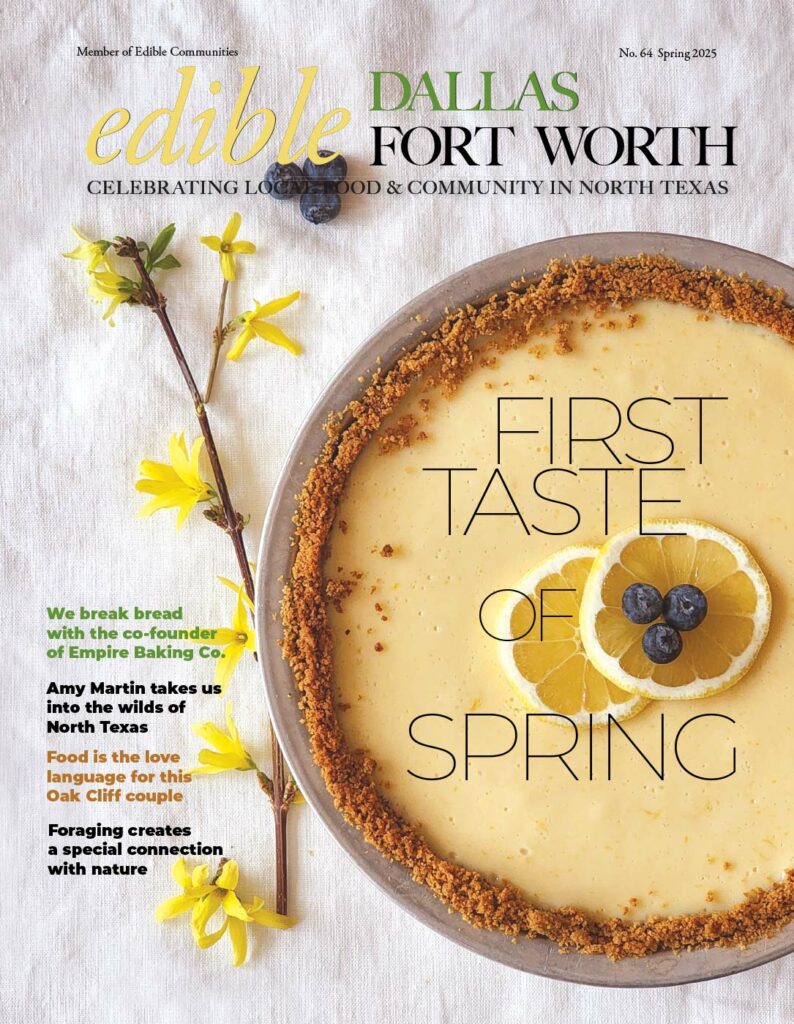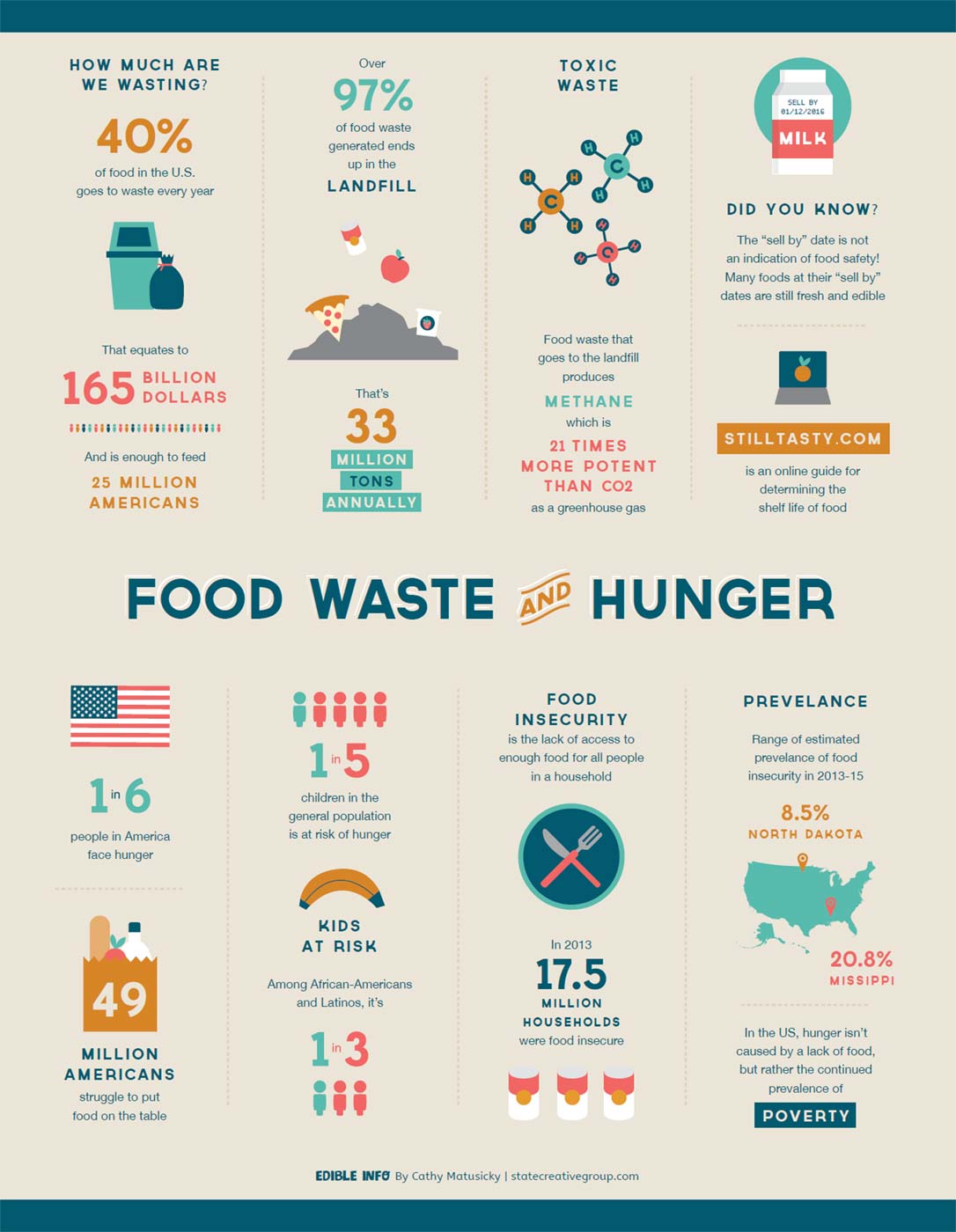
Some parts of North Texas have perpetually struggled with access to fresh produce— far before the wave of uncertainty that the pandemic brought. Largely due to a lack of grocery stores and farmers’ markets nearby, these food apartheids make it overwhelmingly difficult to access fresh fruits, vegetables, and other nutritiously dense whole foods. While the USDA has previously identified 88 food deserts in Dallas County alone (over half concentrated in the city of Dallas’ southern sectors) a new study published in March of this year from The University of Texas at Dallas suggests food deserts in Dallas county are likely more prevalent.
The consequences resulting from a lack of healthy food options have long since taken their toll on the health and well-being of those communities which have higher occurrences of diet-related heart disease, diabetes, stroke, asthma, COPD, kidney disease and obesity. These health problems, prevalent throughout America, are even higher in food apartheid areas. Now even more concerning is that the CDC also lists them as risk factors that can contribute to severe COVID-19 cases and more likely to require hospitalization. Several individuals and organizations are focused on increasing access, expanding supply and growing more healthy produce in these areas. These are some of North Texas’ Horticulture Heroes rooted with a passion to help others, doing real work to build community despite the pandemic.
Food Desert vs. Food Apartheid
Food desert implies that there is no access to food. Food apartheid is a more encompassing phrase that looks at the whole food system along with race, geography and economics. These areas have corner stores and smaller markets but not widespread access to fresh and healthy foods.
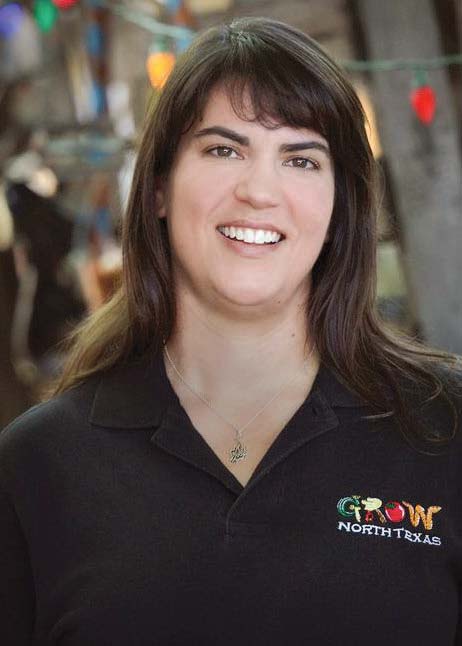
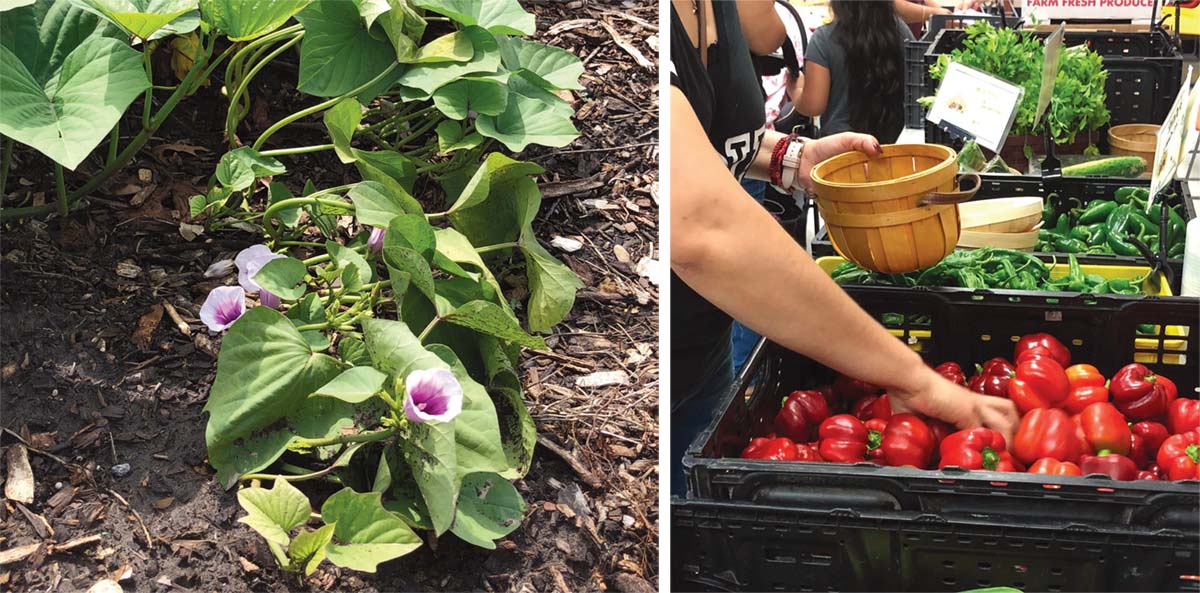
SUSIE MARSHALL
Executive Director of GROW North Texas
GROW North Texas has a mission of connecting food, farms and community while providing equitable access to healthy, nutritious food in the area through their programs including their WIC Farm Stands— which provides an additional $30 of fresh, local produce available for families with Women, Infants, and Children (WIC) benefits.
“There has definitely been an increase in food needs in Dallas over the last six months,” says Marshall. “…we have surpassed last years’ total distribution already. We know this need is not going to subside.” Marshall’s team has also noticed a promising trend.
“In contrast to the growing need for many families, local farmers have tended to have a better year with more people realizing that the grocery store is not the only place one can get fresh foods. When the grocery store shelves were suddenly empty, people caught a glimpse of the problems with our current industrial food system,” says Marshall. But they’ve also faced their fair share of challenges, adapting the WIC Farm Stand program.
“Normally, it is set up as a farmer’s market-type stand where participants can choose what they would like. This year, we created bags of produce with little to no choices. This added a lot of work to our staff, and honestly, takes some of the joy out of the program because we didn’t get to interact with participants, helping them have more knowledge about the fruits and vegetables and how to prepare them,” says Marshall.
How You Can Help: Visit GrowNorthTexas.org to make a financial donation and to learn more about volunteer opportunities at one of their WIC Farmstands, Owenwood Farm and Market Provisions.
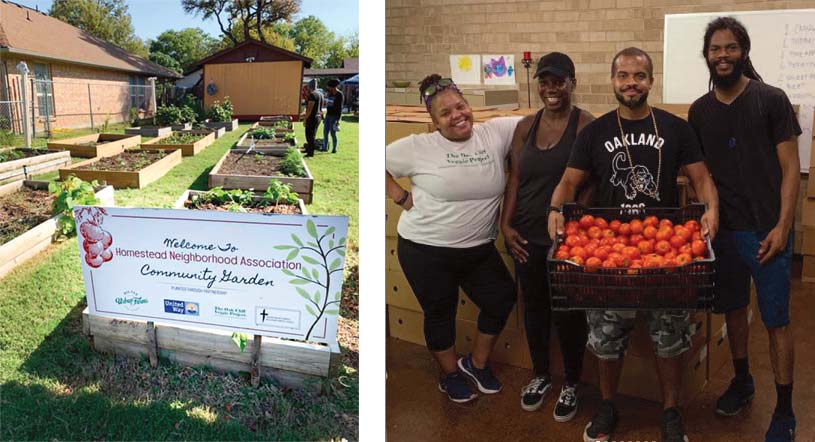
PLES MONTGOMERY IV
Co-Founder and Executive Director at The Oak Cliff Veggie Project
With a mission to cultivate a healthier, stronger, more self-reliant community, Ples and his small team at the Oak Cliff Veggie Project believe food being grown by the community for the community, hyper- locally on a smaller scale is key. During the pandemic, they’ve continued to establish a growing network of gardens that are more than just a piece of ground for growing plants. They are actually cultivating community. By offering weekly food distribution to those in need, in addition to regularly hosting garden workdays and workshops, folks are empowered with the firsthand knowledge to grow food— along with advice on how to healthfully prepare their veggies.
Montgomery conveyed that their main challenges adapting to COVID- 19 have been logistical, taking special precautions to adhere to CDC guidelines.
“These include sourcing, storing and transporting of produce to feed the relief efforts. The other challenge has been in connecting with the community to provide education on growing their own produce and providing them the resources to do so,” says Montgomery. But they’ve also overcome a lot during the pandemic.
“Our success has been and always will be based in people. We have experienced a tremendous outpouring of volunteer support, donations (both monetary and in-kind) to provide food relief,” says Montgomery.
How You Can Help: Email Ples Montgomery IV to volunteer , join a Garden Guardian Team, schedule a donation of garden supplies, or make a financial donation at oakcliffveggiestore@gmail.com.
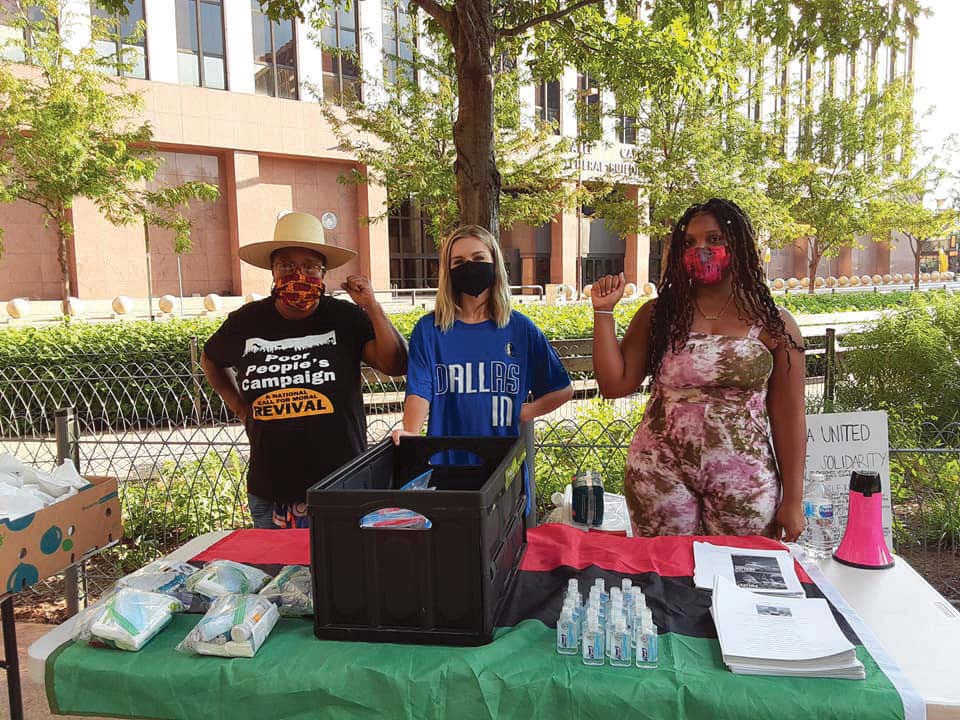
OLINKA GREEN
Community advocate and Outreach Coordinator at The Poor People’s Campaign
Continuing on the vision of Rev. Dr. Martin Luther King’s Poor People’s Campaign of 1968, this community revival and anti-poverty campaign’s goal is to “lift the voices and faces of poor and low-income Americans and their moral allies with a new vision of love, justice, and truth for America.”
As part of this campaign, Olinka Green, a North Texas community organizer and activist, strives to achieve economic justice— especially in North Texas’ underserved communities. One of those goals is to abolish food deserts in impoverished communities by organizing community gardens.
As the pandemic continues to spread across her South Dallas neighborhood, Green has seen an increase in despair and violence along with challenges related to mental health as an exceedingly stressed community endures.
Working with partnering groups, Green helps to overcome challenges associated with gaining access to vacant lots and water for community gardens and raising community awareness about education events at local gardens where folks can learn to grow food themselves.
Her solution also encompasses a holistic approach.
“We have what’s called the ‘People’s Party’ where we go into the community, give out hot food, fresh produce, clothes and even hygiene resources to those in need,” says Green.
How You Can Help: Connect with Olinka Green and The Poor People’s Campaign via Facebook to volunteer or make a donation.
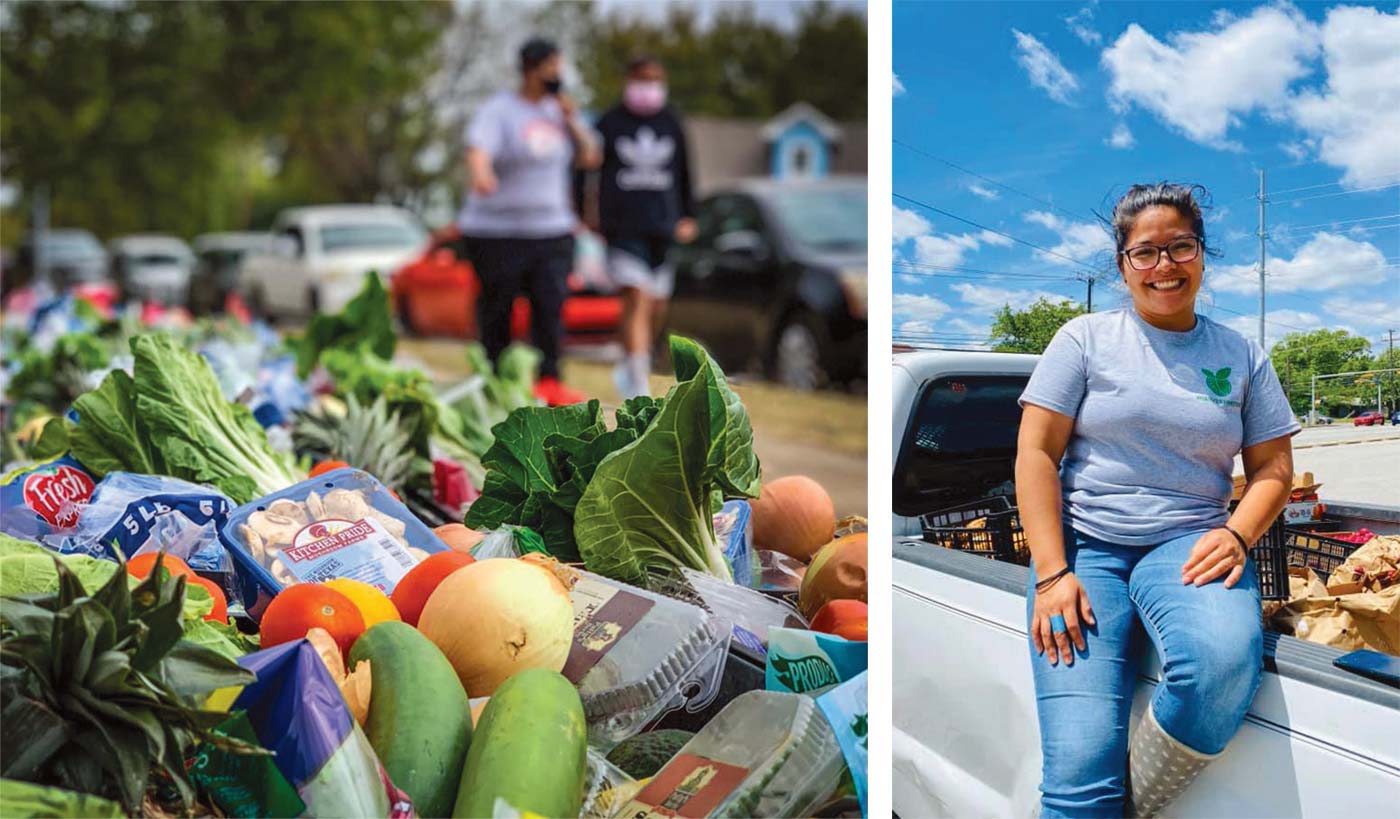
DANAE GUTIERREZ
Co-Founder and President of Harvest Project Food Rescue
The Harvest Project serves to connect surplus or slightly imperfect fresh fruits and vegetables (donated mostly from wholesale distributors) to the underserved communities in Dallas. Unlike other food banks and food distribution programs, from the onset, Gutierrez wanted to make sure that there were no requirements or hoops to jump through for participants to access their program.
“If there is a need, all they need to do is show up,” says Gutierrez.
The Harvest Project delivers food to seven partners across the city so that they can distribute it in their communities using established networks.
“Most of the participants have limited food access because of the lack of funds,” Gutierrez says.
This year has brought its own set of unique obstacles to The Harvest Project as well, keeping up with the increased demand.
“It became my job to find another partner that believed in what we are doing and trust, that’s the most important part, that our partnership could help them, too,” says Gutierrez.
And the Harvest Project was successful in that endeavor, finding another local produce supplier has committed to donation 2-3 times a week. How You Can Help: Visit www.harvestprojectfoodrescue.org to volunteer or make a financial donation. You can also sign up for a weekly home produce delivery, Wholesome Wholesale Basket and profits go back to promoting their mission.
These horticulture heroes are a few of the organizations digging in to increase access and provide healthy options in the South Dallas food desert.
“Dallas has the highest child poverty rate among the 10 largest cities,” says Olinka Green. “No child should go hungry if there’s a community garden in the area or a mutual-aid network to deliver food to those areas in need.”
Daniel Cunningham, Horticulturist with Texas A&M AgriLife's Water University program. His primary focus is a holistic approach to landscaping and food production systems. Cunningham specializes in Texas native plants and trees, vegetable gardening, edible landscaping, rainwater harvesting and is passionate about utilizing landscapes as habitat for benecial wildlife. For more gardening advice om Daniel, tune in to NBC DFW (Channel 5) on Sunday mornings or ask @TxPlantGuy on Facebook, Twitter or Instagram.
- Daniel Cunninghamhttps://www.edibledfw.com/author/dcunningham/
- Daniel Cunninghamhttps://www.edibledfw.com/author/dcunningham/
- Daniel Cunninghamhttps://www.edibledfw.com/author/dcunningham/
- Daniel Cunninghamhttps://www.edibledfw.com/author/dcunningham/


